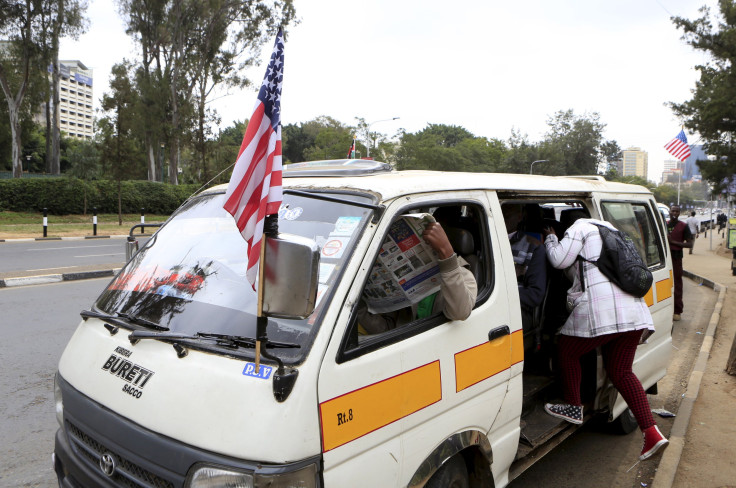Google In Africa: Nairobi, Kenya, Bus Stop Maps Feature Launched For Commuters

A new Google service in Nairobi, Kenya, may make the lives of commuters just a little bit easier. A mapping service of official bus stops in the city was launched Wednesday, the latest effort on the part of the tech giant to help African cities streamline public transportation.
"Launching Google Transit in Nairobi is part of our effort to make Google Maps more comprehensive, accurate and useful for people within the city who take buses and matatus to their next destination," Google's Kenya manager, Charles Murito, told AllAfrica.com. Roughly 3.5 million people in Nairobi ride matatus, or privately-owned minibuses, every day -- even though there is scarce information on the routes, which total more than 130.
The service is available only on Google Android devices. Other cities with the service are Lagos, Nigeria, and Johannesburg.
Google has had its sights on African nations lately, hoping to tap a potentially massive and emerging marketplace. Earlier this year, the company expanded in several African countries, including Kenya, with its Android One smartphone, an affordable mobile device that was accompanied by the rollout of YouTube offline in several African countries. In Nigeria, Egypt, Ivory Coast, Kenya and Morocco, people are now able to buy smartphones for less than $100.
Focusing so squarely on smartphone and mobile technologies in Africa is a seemingly smart move. Africans typically access the Internet via mobile devices because many countries there lack the infrastructure for wired connections. The mobile connection rate in Africa is expected to increase 20-fold between 2013 and 2018, or double the rate of the rest of the world. It's a good market, and the graphic above shows that the populations to serve in African countries are booming.
© Copyright IBTimes 2024. All rights reserved.












